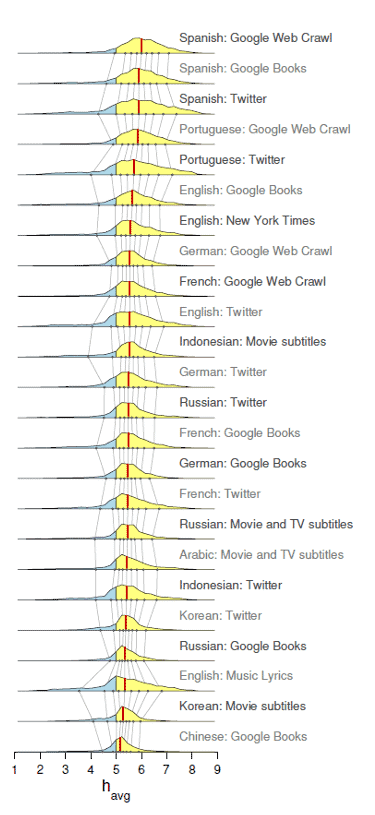 Over the years, neuroscientists, linguists and anthropologists have tried to define the relationship between our perception of the world and our native language. For that purpose, numerous theories have been established. One of them is the Pollyanna Hypothesis, created by the researchers Jerry Boucher and Charles Osgood in 1969. According to this theory, humans, as social creatures, tend to skew their use of language towards happy words, rather than negative ones.
Over the years, neuroscientists, linguists and anthropologists have tried to define the relationship between our perception of the world and our native language. For that purpose, numerous theories have been established. One of them is the Pollyanna Hypothesis, created by the researchers Jerry Boucher and Charles Osgood in 1969. According to this theory, humans, as social creatures, tend to skew their use of language towards happy words, rather than negative ones.
Researchers of the University of Vermont have recently conducted the largest study to date intended to establish the accuracy of this hypothesis. Ten of the most popular languages in the world were chosen: English, French, Spanish, German, Brazilian Portuguese, Korean, Chinese, Russian, Egyptian Arabic and Indonesian. The researchers extracted the 100,000 most frequently used words in Twitter, the New York Times, the Google Books Project, Google’s Web Crawl, and movie and television subtitles and song lyrics. Native speakers of these languages were then asked to rank them on a nine-point emotional scale (being 1 the most negative mark and 9 the most positive one).

The results? In the words of Peter Dodds, the mathematician who co-led the study, the most important finding is that “every language skews towards happiness”. However, some of them have proved to be happier than others. On this scale, Chinese brought up the rear, followed by Korean, Russian and Arabic. Spanish topped the list, right ahead of Brazilian Portuguese, English and Indonesian. For each negative word, 9 positive words are used in Spanish, while the proportion for Chinese is 3/7.
The question now is what leads us to prefer terms that exhibit a positive bias. Dodds explains that “language encodes our sociality. We are social beings. You can argue that we are selfish or altruistic, but language tells a story about how we behave.” If, as some theories suggest, language shapes the way we think, using positive words as a means to have a happier perspective of life seems to be a plausible hypothesis. And even if some ifs appear (if the words extracted accurately convey our thoughts and emotions or just our circumstances, if a relevant amount of them come from irony or even idioms, etc.), the fact that we tend to instil positivism in our language is yet another healthy sign of human’s continuous pursue of happiness. And apparently, and at least regarding linguistics, Spanish speakers are ahead of the race.
¡Fantástico!
by Marina Gutiérrez
EN, FR > ES Translator and Interpreter
Terminology Trainee at the Terminology Coordination Unit
